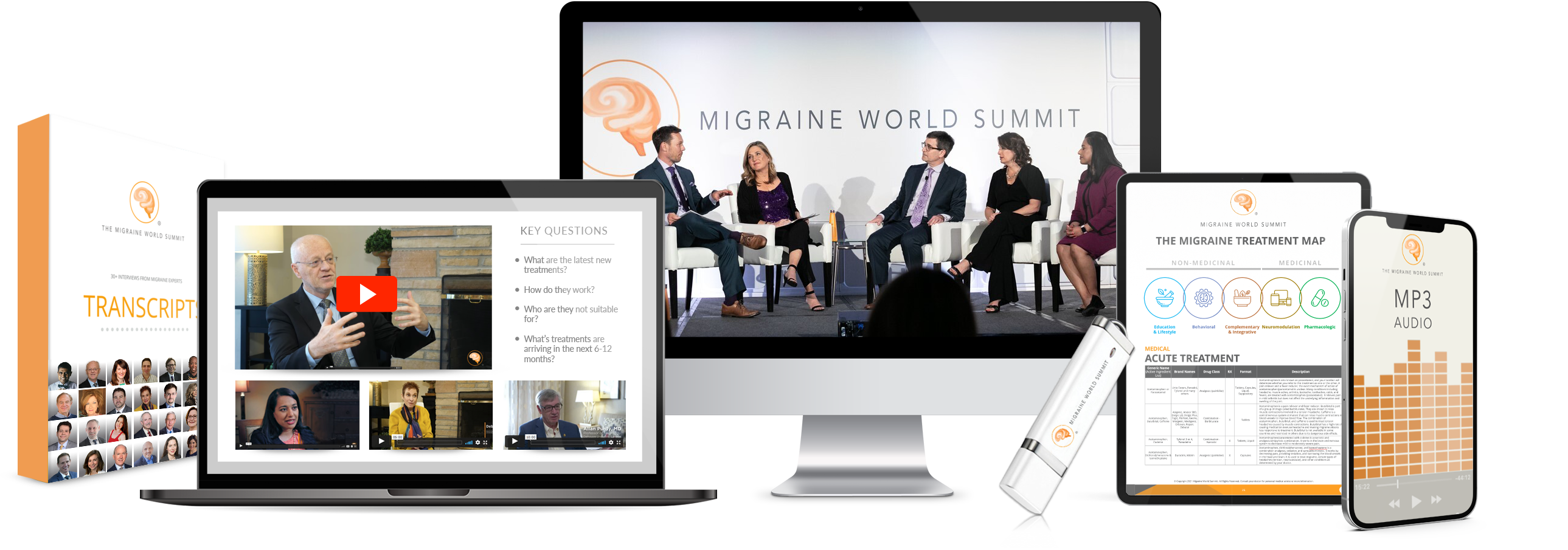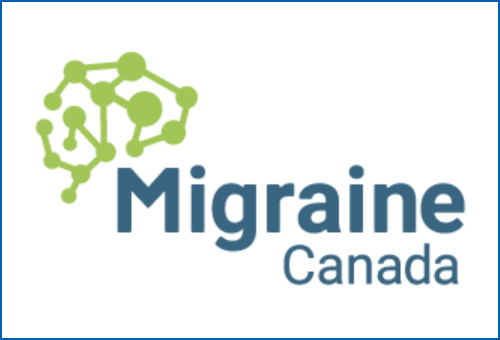Is Migraine Linked With Cognitive Decline or Dementia?
You are currently watching a preview of this interview. Unlock the full version by upgrading to an Access Pass bundle! Get FREE access to 8 expert interviews from Day 1 and Day 2 when you register today!
Key Questions
- ¿Cuál es la definición de un factor de riesgo?
- ¿Qué es la demencia?
- ¿Qué causa la demencia?
- ¿Qué ha encontrado la investigación respecto a los vínculos entre la migraña y la demencia?
- ¿Por qué es difícil investigar este tema?
- ¿Puede la dieta ser un factor en la migraña y la demencia?
- ¿Cuáles son algunos ejemplos de enfermedades cerebrovasculares y sus vínculos con la migraña y la demencia?
- ¿Qué es el drenaje glicofático? ¿Cómo podría ser un componente de la migraña y una vía potencial hacia la demencia? El dolor, el estrés y la inflamación son parte de la migraña.
- ¿Son también factores de riesgo para la demencia?
- ¿Hay alguna evidencia de que la migraña cause deterioro cognitivo?
- ¿Es natural que todos experimenten un deterioro cognitivo a medida que envejecen?
- ¿Puede el deterioro cognitivo ser acelerado por medicamentos?
- ¿Puede el miedo y la ansiedad exacerbar o acelerar el deterioro cognitivo?
Interview Notes
- Richard B. Lipton, MD
- American Headache Society
- Montefiore Headache Center
- Headache in Clinical Practice
- Study: “The association between migraine and dementia – a national register-based matched cohort study”
- Study: “Headache disorder and the risk of dementia: a systematic review and meta-analysis of cohort studies”
- Study: “Cortical spreading depression closes paravascular space and impairs glymphatic flow: Implications for migraine headache”
- Study: “Migraine pharmacological treatment and cognitive impairment: Risks and benefits”
- Study: “Headache – A window to dementia: An unexpected twist”
- Article: “Migraine Sleep Quality Examined in New Study”
Treatments Mentioned
- Amitriptyline
- Exercise
- Mediterranean diet
- Nortriptyline
- Omega-3 fatty acids
- Sleep
- Topiramate (Topamax)
Please note: The Migraine World Summit’s aim is to bring you a variety of perspectives and expertise, independent of bias or judgment. Alternative theories presented in this video have not been medically reviewed. Views expressed in this interview do not necessarily represent the views of the Migraine World Summit. Please always consult your health care professional and do your own research before making changes to your treatment plan.
This is a Spanish translation of an expert interview from the Migraine World Summit 2024. All interviews have been carefully translated and medically reviewed.

Richard B. Lipton, MD
Professor of Neurology & Director of the Montefiore Headache Center, and Director of the Division of Cognitive Aging and Dementia
Albert Einstein College of Medicine
Dr. Richard B. Lipton is an expert in headache and migraine management, as well as cognitive aging and dementia. He serves as the director of the Montefiore Headache Center and holds the prestigious Edwin S. Lowe chair in neurology at Albert Einstein University in New York. Internationally acclaimed for his contributions to headache diagnosis, classification, epidemiology, and treatment, Dr. Lipton has an impressive bibliography with 11 books and over 1,000 articles in indexed journals. His textbook, Headache in Clinical Practice, earned him the Medical Book Award from the British Medical Association.
He is past president of the American Headache Society (AHS), and is an associate editor for Cephalalgia: An International Journal of Headache. Additionally, he contributes to several other editorial boards, including for Neurology. His outstanding research has been recognized six times with the Harold G. Wolff Lecture Award from the AHS. Beyond neurology, Dr. Lipton is also a professor in psychiatry, behavioral sciences, epidemiology, and population health at the Albert Einstein College of Medicine.

Purchase full access to the entire 2024 Summit. Includes:
- All expert interviews with separate audio (MP3) files & transcripts
- Lifetime on-demand access with no annual fee to 2024 Summit
- Interview Summaries
- Treatment Guidelines
- And much more!
Related Talks for: Day 8 (2024)
Finding Migraine Relief
Elizabeth Leroux, MD, FRCPC
Could Biomarkers Improve Migraine Diagnosis?
Patricia Pozo-Rosich, MD, PhD
Genetics Research: Hope for a Future of Personalized Migraine Care
Dale Nyholt, PhD
Migraine Canada is the only national, volunteer-based charity focused on supporting all Canadians impacted by migraine and other headache conditions.
We are transforming the lives of people affected by migraine and headache conditions through awareness campaigns, education and support programs, advocacy and research.

If you enjoyed the Migraine World Summit, consider purchasing a pass to have full access and watch all the interviews at your own pace. With the pass, you'll get access to transcripts, audios, treatment guidelines, and an updated list of new treatments. It's a great way to keep learning and exploring more options for managing migraine, whenever it suits you best. Invest in your well-being and continue deepening your knowledge of migraine!






